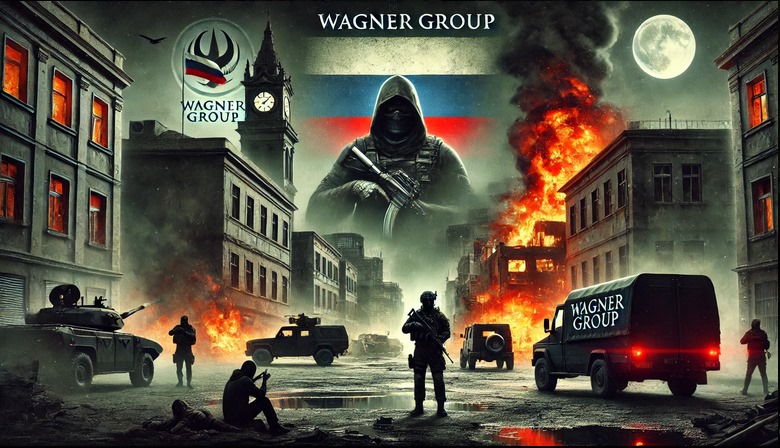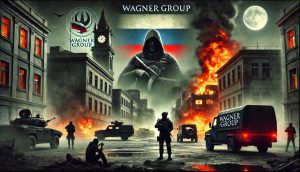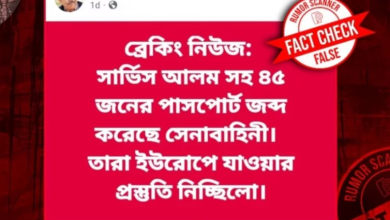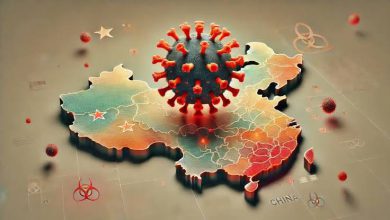Wagner Group’s Ultraviolent Campaign: Seizing Control in Africa
Wagner Group's Ultraviolent Campaign: Seizing Control in Africa

Wagner Group Captures African State as Russian Beachhead in Ultraviolent Terror Campaign
The Wagner Group, a notorious Russian paramilitary organization, has made headlines again as it expands its influence across Africa. In a shocking turn of events, the group has seized control of a critical African state, marking the latest chapter in Russia’s covert operations across the continent. This new development has alarmed international observers, as the Wagner Group is known for its extreme tactics, including terrorism, human rights abuses, and destabilizing political regimes.
The Wagner Group’s African Expansion
The Wagner Group has been operating in Africa for several years, often aligned with Russia’s geopolitical ambitions. While the group is officially a private military company, its operations have been linked to the Kremlin, with evidence suggesting that it functions as an extension of Russian foreign policy. Wagner’s increasing presence in Africa, particularly in countries with fragile political systems and vast natural resources, has raised concerns about its long-term objectives.
In recent months, reports have emerged indicating that the Wagner Group has successfully captured a strategic African state, pushing its agenda of destabilization and influence. The takeover follows a series of violent operations that have left a trail of destruction, with civilian casualties and human rights violations mounting. This aggressive move is seen as part of a broader Russian strategy to gain a foothold in Africa and challenge Western influence in the region.
The Role of Wagner Group in the Conflict
The Wagner Group’s involvement in this African state is marked by its trademark brutality. Known for using terror tactics, Wagner operatives have engaged in violent actions aimed at controlling key infrastructure, destabilizing local governments, and suppressing opposition forces. According to sources within the region, the group has employed extreme violence, including mass executions, abductions, and intimidation, to solidify its control over territory.
The Wagner Group’s presence in Africa has been linked to several atrocities in countries such as the Central African Republic (CAR), Libya, and Mali, where it has provided military support to authoritarian regimes in exchange for access to valuable natural resources. In this latest case, the capture of the state is expected to facilitate Russia’s continued extraction of resources like gold, diamonds, and oil.
While the group presents itself as a “security force,” its operations are often characterized by a complete disregard for international law and human rights. This campaign of terror is seen as a method of consolidating power in the region while also ensuring that the Wagner Group and, by extension, Russia maintain a firm grip on Africa’s vast resources.
A Strategic Russian Beachhead
The capture of this African state represents more than just the acquisition of territory; it signals a significant step in Russia’s efforts to establish a beachhead in Africa. As global powers jostle for influence in Africa, Russia has increasingly turned to paramilitary groups like Wagner to advance its interests without direct military intervention. This tactic allows Russia to operate under the radar, while still exerting significant influence over African nations.
Russia’s involvement in Africa has grown substantially in recent years, driven by its desire to challenge Western dominance and secure lucrative resource deals. The Wagner Group serves as the Kremlin’s proxy force, allowing Moscow to maintain plausible deniability while engaging in operations that align with its broader foreign policy goals. By propping up governments willing to support Russian interests, Wagner helps Russia expand its sphere of influence in Africa and beyond.
The implications of this strategy are far-reaching. If the Wagner Group’s control over this African state is solidified, it could serve as a staging ground for further Russian military operations across the continent. This move also complicates Western efforts to curb Russia’s growing power in Africa, as European and American nations struggle to respond to Wagner’s actions effectively.
Global Response to Wagner’s Actions
The international community has reacted with condemnation to the Wagner Group’s role in the violence and instability sweeping through Africa. Human rights organizations have called for immediate action against the group, urging the United Nations and regional bodies like the African Union (AU) to impose sanctions and take steps to restore peace and stability in the affected country.
The United States and the European Union have also voiced their concerns, with both entities sanctioning Wagner and its affiliates in the past for their involvement in conflict zones. However, these sanctions have had limited success in curbing the group’s activities, as Russia continues to shield the paramilitary group from significant international pressure.
The capture of an African state by Wagner adds a new dimension to the geopolitical struggle for influence in Africa. It not only strengthens Russia’s position but also exacerbates the challenges facing African countries that are caught in the crossfire of global power struggles. With the Wagner Group now firmly entrenched in this region, the stakes are higher than ever, and the international community faces an uphill battle to counteract its growing influence.
The Path Forward: Addressing the Wagner Group’s Threat
In response to Wagner’s increasing presence, several measures need to be taken to curb the group’s operations. First, the international community must strengthen its commitment to holding Wagner and its backers accountable. This includes expanding sanctions, freezing assets, and imposing travel bans on key Wagner figures.
Second, regional bodies such as the AU must work to build stronger alliances with global powers to counteract the influence of Wagner. This may involve diplomatic efforts to isolate Russia from African governments that have cooperated with the group, while also ensuring that human rights protections are upheld.
Finally, a robust international response is needed to provide support for the civilian populations affected by Wagner’s violence. Humanitarian aid, peacekeeping missions, and a coordinated diplomatic push are essential to restoring stability in the affected African state and preventing the group from further destabilizing the region.
Conclusion: A Dark Chapter in African Politics
The Wagner Group’s capture of an African state represents a dark chapter in the continent’s ongoing struggle for peace and stability. As the group continues its ultraviolent campaign of terror, the international community must act decisively to prevent further bloodshed and ensure that African nations are not held hostage by foreign paramilitary groups. The rise of Wagner in Africa is a stark reminder of the growing role that private military companies play in global conflicts, and the need for stronger international frameworks to address this threat.
________________________________________




